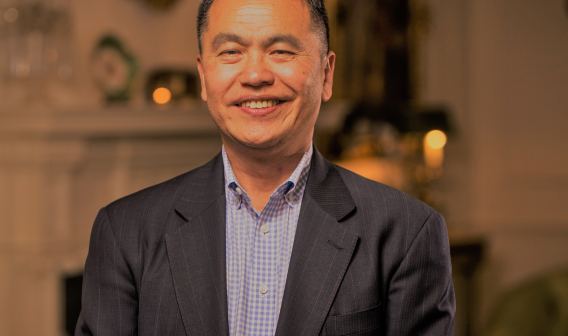
Dr. Joseph S. Broz is vice president for quantum growth and market development at IBM, where he’s responsible for driving commercial quantum applications and business adoption of advanced quantum computing capabilities. Before IBM, he served as executive director of the Quantum Economic Development Consortium and senior quantum advisor to the U.S. Air Force Research Laboratory. David Ihrie, chief technology officer of the Virginia Innovation Partnership Corporation, spoke with Broz about IBM’s extensive history and leadership position in the quantum computing field and why recent quantum successes are so important.
David Ihrie: IBM is one of the pioneers of quantum science and technology. Can you highlight some of IBM’s quantum history and your current priorities in the quantum space?
Joseph Broz: For a number of decades, quantum information science has been a theoretical promise, and today we have evidence it’s becoming real. The quantum computing promise is that we’ll be able to solve problems that have been heretofore unsolvable, that quantum computing is not just a faster or better version of the quantum supercomputers or classical systems that we use today, but that it’s an entirely new form of computation. Quantum computing draws from the fundamental laws of quantum physics and carries out calculations using what are known as quantum bits, or qubits.
Qubits can hold simultaneous values at the same moment, whereas a bit can either be just 0 or 1 at any given time. As a result, you have this ability to create a very large computational space, and that gives quantum computers tremendous power to solve extremely complex problems that even the most sophisticated advanced supercomputers are unable to solve today.
So, what does that mean to the everyday user, everyday life, the people on the street? It means better pharmaceuticals, better understanding of fundamental processes of biology, better understanding of fundamental chemistry, new materials, new engineering, better energy storage, more efficient batteries, and more stable financial markets that are optimized using the power of quantum computing to solve outstanding problems today that have heretofore been resistant to solution.
Ihrie: What is the current state of quantum computing technology?
Broz: We have very good and recent evidence that quantum computing today is reaching a point of utility. Quantum computers had always pointed to tremendous economic potential. Recently at IBM, we started to gain strong evidence that we had crossed a certain threshold, that in fact quantum computing is showing evidence of utility.




